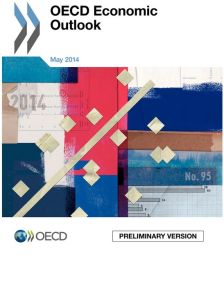Melden Sie sich bei getAbstract an, um die Zusammenfassung zu erhalten.

Melden Sie sich bei getAbstract an, um die Zusammenfassung zu erhalten.
OECD
OECD Economic Outlook
May 2014
OECD, 2014
Was ist drin?
Global economic trends tell only part of the tale: Some nations are moving up the ladder while some are left behind.
Recommendation
The 2008 financial crisis forever changed the trajectory of economic expansion, both globally and among individual nations. Since then, a nascent recovery has brought growth back in some parts of the world, while progress has eluded others. In the future, countries will need to take prudent economic steps and make necessary reforms to remain competitive. This twice-yearly overview of global economic trends and statistics is a useful guide to world economies, although its organization and readability could use some improvement. getAbstract recommends it to economists, journalists, academics and others interested in indicative economic statistics and trends, both globally and within specific countries.
Summary
About the Author
The Organisation for Economic Co-operation and Development is an international forum of 34 nations that promotes global economic advancement and trade.




























Comment on this summary